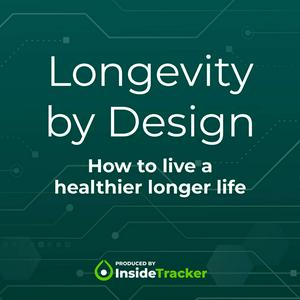GLP-1, Wearables & Longevity: What You Need to Know – AMA with Gil & Ashley
Dr. Gil Blander and Ashley Reaver dive into the science behind GLP-1 agonists, a class of drugs originally developed for type 2 diabetes but now widely used for weight management and longevity. They explore how these medications work, their effects on appetite, metabolism, and inflammation, and why they might be a game-changer for cardiovascular health, brain function, and fertility. While promising, they emphasize the importance of long-term research and consulting with medical professionals before considering these treatments.The conversation shifts to the role of wearables in health tracking. Gil shares insights on devices like the Apple Watch, Oura Ring, and Whoop, highlighting their capabilities in tracking sleep, fitness, illness detection, and fall prevention—especially for older adults. They break down how different wearables cater to specific needs and the future of personalized health monitoring.As the science of longevity evolves, Gil and Ashley stress the importance of staying informed, making data-driven decisions, and using technology wisely. Whether through cutting-edge pharmaceuticals or smart wearables, optimizing health is now more accessible than ever.Host-at-a-Glance💡 Name: Gil Blander 💡What he does: Founder and CSO💡Company: InsideTrackerHost-at-a-Glance💡 Name: Ashley Reaver 💡What she does: Lead Nutrition Scientist💡Company: InsideTracker Episode highlights:[00:00:00] Introduction [00:02:02] Understanding GLP-1 Hormones[00:04:26] GLP-1 Receptor Agonists: Mechanism and Benefits[00:06:50] Impact of GLP-1 on Weight and Health[00:21:16] Side Effects and Considerations of GLP-1 Agonists[00:26:31] The Future of GLP-1 Agonists[00:34:54] Exploring Wearables for Health[00:36:08] Choosing the Right Wearable[00:40:29] Wearables for Detecting Illness and Falls[00:47:12] Conclusion and Final ThoughtsKey InsightsGLP-1 Agonists: A Breakthrough for Weight and Metabolic HealthGLP-1 agonists, originally developed for type 2 diabetes, have become a game-changer for weight loss, appetite control, and longevity. These drugs mimic natural gut hormones that regulate hunger and insulin secretion, helping people feel full longer and stabilizing blood sugar levels. Studies show that GLP-1 agonists can reduce body weight by up to 25%, a level comparable to bariatric surgery. Beyond weight management, these drugs may lower inflammation, improve cardiovascular health, and even reduce the risk of certain cancers. However, long-term use is likely necessary, as stopping the medication often leads to weight regain. Gil and Ashley emphasize the importance of medical supervision and highlight ongoing research into how GLP-1 impacts cognitive function and fertility.Wearables: The Future of Personalized Health TrackingWearables are reshaping how individuals monitor their health from fitness to disease prevention. Gil and Ashley break down Apple Watch, Oura Ring, and Whoop, each catering to different needs. Apple Watch excels at fall detection and emergency response, making it ideal for older adults. Oura Ring provides early illness detection through temperature and heart rate variability tracking. Whoop is favored by athletes for its detailed recovery insights and sleep monitoring. Wearables aren’t just for data collection—they drive behavior change, encouraging users to improve sleep, exercise, and stress management. With AI-driven health coaching on the rise, the hosts predict that wearables will play a central role in proactive healthcare and longevity strategies.For science-backed ways to live a healthier longer life, download InsideTracker's Top 5 biomarkers for longevity eBook at insidetracker.com/podcast
